Roundtable meeting
SOUNDS CALL FOR MULTIPLYING ACCESS TO FINANCING FOR CLIMATE ACTION
New ECLAC Executive Secretary
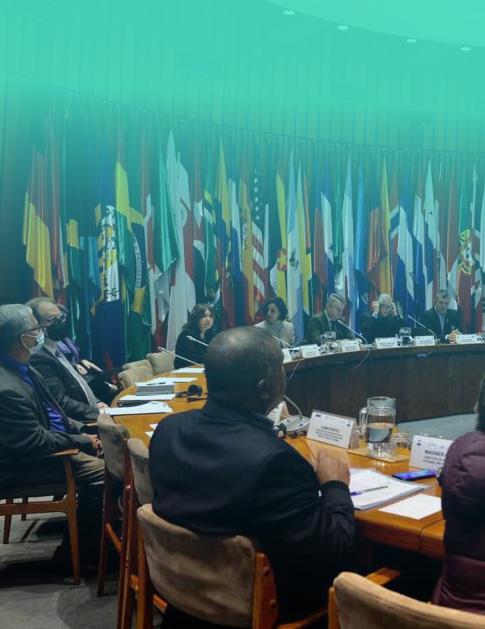
JOSÉ MANUEL
SALAZAR-XIRINACHS
Peruvian food festival IN TRINIDAD
Volume 9 - Issue 9
Resilient and affordable housing in the Caribbean A HUMMING BIRD FEATURE: Roundtable meeting sounds call for multiplying access to financing for climate action

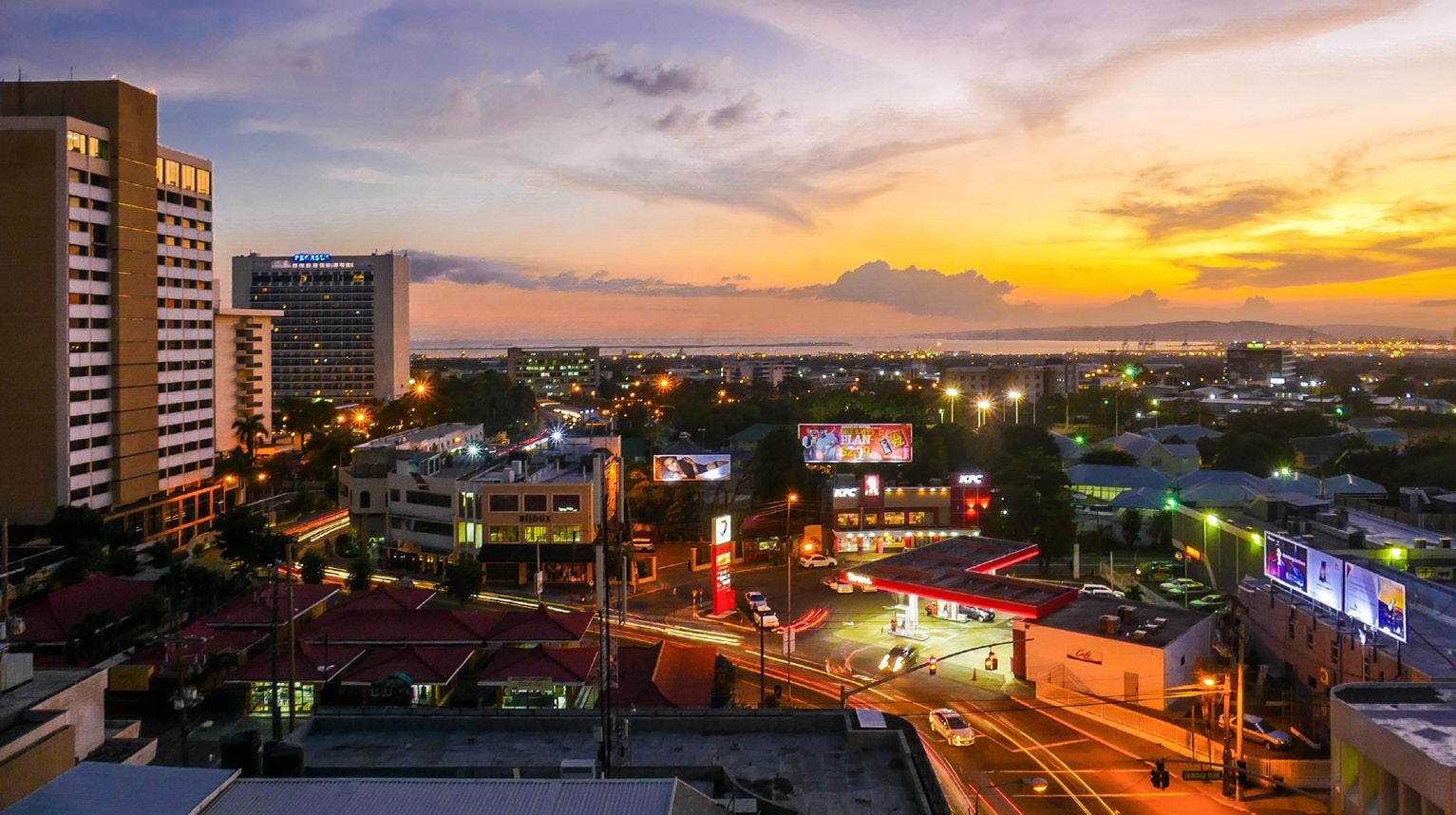
About us
Issued on a monthly basis, The Hummingbird offers insights into the latest projects, publications, technical assistance missions and research carried out by ECLAC Caribbean. In addition to these, sneak previews are provided of the most salient upcoming events, alongside enriching followups to previously covered issues. With a view to featuring a variety of facets of Caribbean life and lifestyle, The Hummingbird also zooms in on cultural activities and landmark occurrences through an eye-opening regional round-up.
EDITORIAL TEAM
Editor: Johann Brathwaite
Copy Editor: Denise Balgobin
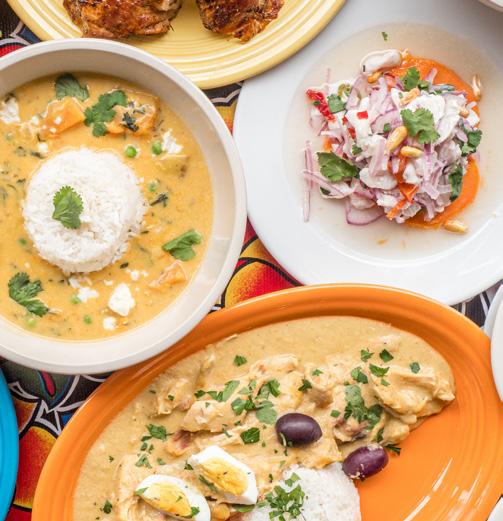
Proof Reader: Veera Deokiesingh-Fraser
Publication Design: Liseanne Martin-Subero
Please see our contact details on the back cover of this magazine.
New ECLAC
Secretary,
Salazar-Xirinachs Jamaica’s creativity-fueled tourism renaissance Considerations for sustainable transportation in Caribbean SIDS Saint Kitts urges visitors to “venture deeper” 4 6 10 12 14 16 17 8 13
Executive
José Manuel
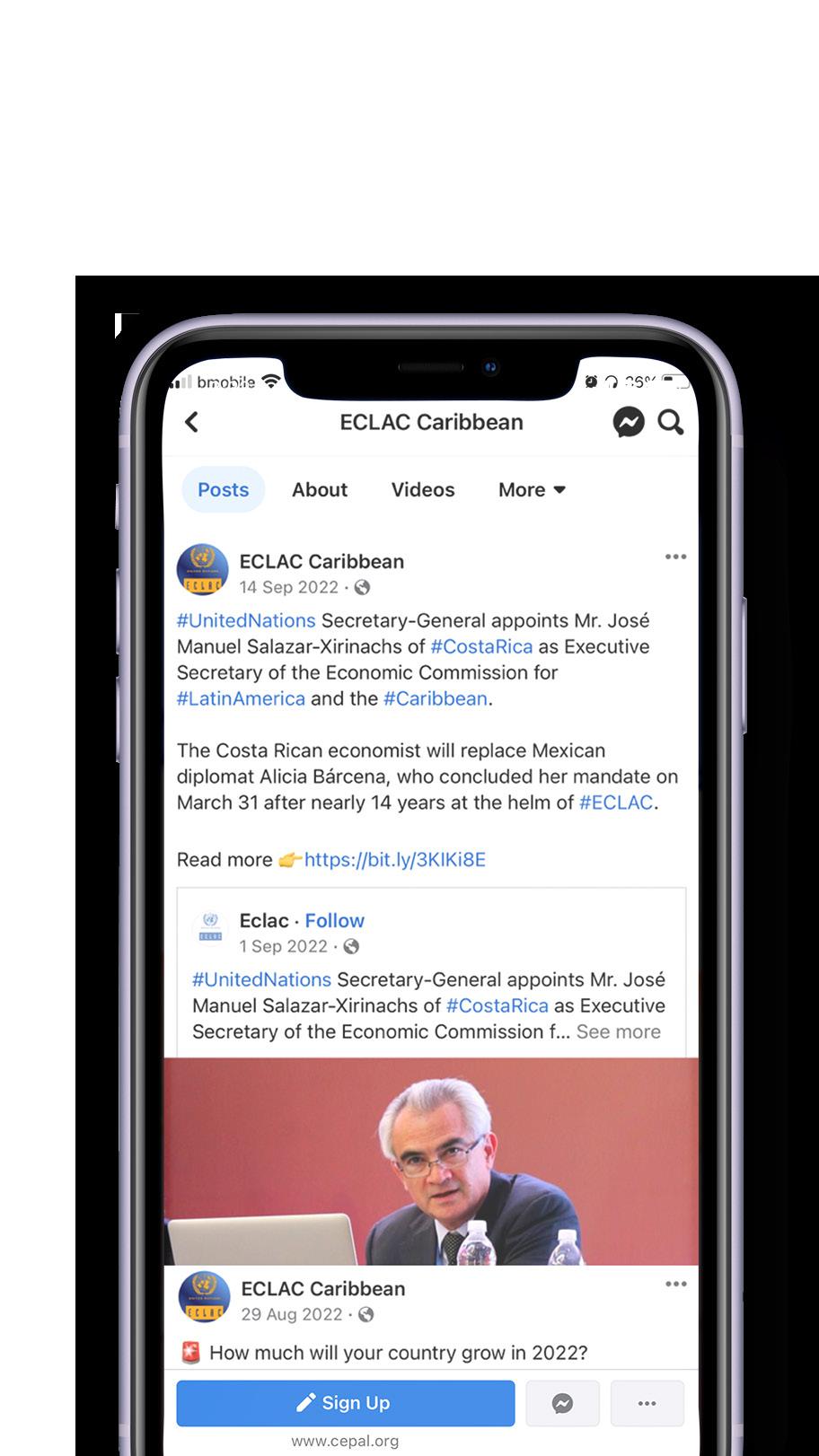
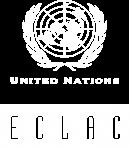
International Days Upcoming Meetings 1 October International Day of Older Persons 5 October World Teachers’ Day 11 October International Day of the Girl Child 13 October International Day for Disaster Risk Reduction 24 October United Nations Day 12 OCTOBER 2022 Seventh meeting of the Caribbean Development Roundtable 14 OCTOBER 2022 Twenty-ninth session of the Caribbean Development and Cooperation Committee 19 OCTOBER 2022 Expert Group Meeting: The Ageing Caribbean - 20 Years of the Madrid Plan of Action
Resilient and affordable
HOUSING IN THE CARIBBEAN
Inadequate housing is a contributing factor to the intergenerational transmission of poverty. Slums and informal settlements are among the most tangible expressions of inequality and reflect longstanding development gaps, between those who live in the middle- and highincome formal neighborhoods and those living in poor or informal settlements.
Addressing this “urban gap” is crucial for building a more just society and should not be separated from overall sustainable development ambitions.
To address this issue, Caribbean countries have embarked on various housing policies to tackle the negative consequences of unplanned urbanization. These include assistance with housing costs to provide access to affordable housing.
ECLAC Caribbean recently prepared a policy brief on “Resilient and affordable housing in the Caribbean”; this article shares some of the information highlighted in the brief. Here are the key recommendations:
1. Develop and implement national housing policies that integrate stakeholders at the local, national, and regional level;

4|The Hummingbird
2. Enable participatory planning to increase implementation capacities;
3. Invest in the existing housing stock;
4. Support research on climate resilient housing;
5. Develop and update construction standards and building codes;
6. Support locally-drive community development that informs national housing policies;
7. Offer training support on resilient and sustainable building techniques;
According to the World Bank’s World Development Indicators, about 33 percent of Caribbean SIDS’ population lived in slum dwellings as of 2018, contributing to the further spatial segregation of the subregion’s poor.
Adequate and affordable housing is a human right and contributes to achieving sustainable development priorities in the Caribbean SIDS (OHCHR/UNHabitat, 2009).
Policy measures to guarantee the right to adequate and affordable housing can include government action at legislative and executive levels, especially regarding budgetary allocations. These policy measures can also include the creation of public-private partnerships (PPPs) that support the inclusion of all stakeholders to activate the production and improvement of shelters.
However, it is essential to note that the right to adequate housing does not translate to the State’s obligation to build housing for the entire population.
8. Consider alternative financing options;
9. Promote insurance mechanisms.
Historically, unplanned urbanization and limited land supply were the fundamental causes of housing unaffordability in Caribbean countries. However, as populations continue to grow and move to cities, by 2030, 40 per cent of the Caribbean population (or approximately five million persons) will become urban dwellers and require adequate housing (UN-DESA, 2018).
Furthermore, the increased inequality and informal settlement expansion have followed unplanned urbanization in many Caribbean countries.
Grand Cayman’s
SIGNATURE AIRPORT LOUNGE IS BACK
Cayman Airways has officially reopened its signature departure lounge at Grand Cayman’s Owen Roberts International Airport. The Sir Turtle Club Lounge is back, open only to business class ticket holders and platinum and gold rewards members of the airline’s loyalty program.
The policy brief also outlined some of the challenges being faced in the subregion, including the remarkable growth of the Caribbean urban population in recent decades (UN-DESA, 2018). This presents multiple policy challenges in enacting measures to address the need for resilient housing and sustainable development.
Climate change impacts also multiply existing challenges to countries’ resilience in coastal protection, biodiversity, access to potable water, energy, and food security. The high concentration of settlements near the coast, many in low-lying areas, increases vulnerabilities to coastal floods, storm surges and inland flooding.
Other factors that precipitate or exacerbate vulnerability and can quickly become either causes or consequences of unaffordable and non-resilient housing are poverty, disease, NCDs and COVID-19.
It’s a new lounge built by local company Kozaily Designs, with a turtle-focused aesthetic, from the wall tiles to the carefully curated images of Cayman’s landscapes and seascapes.
The relaunch comes as Cayman Airways is making enhancements to its loyalty rewards and club programs, according to Cayman Airways President and CEO Fabian Whorms.
“We want to deliver the maximum value and exclusivity that we can to our loyal customers, and we are looking to build a new generation of customers who see even more value than has been traditionally offered, when choosing the national airline,” Whorms said.
It also comes as Cayman Airways is set to launch its most-anticipated new route in years, with nonstop service between Los Angeles and Grand Cayman in November.

“The new and improved Sir Turtle Club Lounge adds value to the Cayman Airways product on a whole, while offering up the possibility for a few more jobs for our people,” said Cayman Tourism Minister Kenneth Bryan.
“I have no doubt that our Sir Turtle Club members and Business Class passengers will be very satisfied with the enhancement to our services, and I am sure they will all enjoy this comfortable space while waiting for their flights.”
CLICK TO READ THE POLICY BRIEF The Hummingbird |5
roundtable meeting sounds
CALL FOR MULTIPLYING ACCESS TO FINANCING FOR CLIMATE ACTION

6|
The Hummingbird
The Roundtable meeting on Climate Finance and the Energy Transition in Latin America and the Caribbean – one of the five regional forums being held ahead of the upcoming COP27, presided by Egypt – was held from 1 to 2 September 2022, at the central headquarters for ECLAC in Santiago, Chile.

One of the main topics discussed at the Roundtable was unlocking access to climate finance, especially in emerging markets and developing economies. This is crucial for closing the gap in financing adaptation, and resilience.
read more
The Hummingbird |7
continued from page 7
ROUNDTABLE MEETING SOUNDS CALL FOR MULTIPLYING ACCESS TO FINANCING FOR CLIMATE ACTION
The event was held using a hybrid format (in-person and virtual), and was inaugurated by Amina J. Mohammed, UN Deputy Secretary-General (virtual), along with Sameh Shoukry, Minister of Foreign Affairs of the Arab Republic of Egypt and Presidentdesignate of COP27 (virtual), and other dignitaries.
Mohammed warned in her opening remarks that the world was in a race against time. “The Latin American and Caribbean region must have the support to accelerate a just transition to renewable energy. The region
has great potential for solar and wind power generation and must be supported through strong investments, including in storage capacity and great flexibility to accommodate renewables”, she said.
Meanwhile, Minister Shoukry pointed out that the promotion of new financial instruments and the predictability of climate finance in developing countries, are key to achieving the Paris Agreement’s goals. He said: “To this end, there is an urgent need to unlock climate finance through the massive mobilization of public and private
resources for climate action at the local, national and regional levels, across all themes of climate action.”
Speaking on behalf of ECLAC’s Acting Executive Secretary, Mario Cimoli, Director of the Sustainable Development and Human Settlements Division, Joseluis Samaniego, warned that Latin America and the Caribbean had the sad record of having gone in just a few years from contributing 8.3 percent of global emissions to contributing 10 percent.
“The region is not doing very well

8|The
Hummingbird
either in terms of public policies. Only four countries apply a static carbon tax and at very low levels. The discussion on methane taxes has not formally begun. Just one country is applying a social price to carbon in public investment, although we are trying to advance so that this kind of instrument is adopted by more countries. There is enormous room for achieving better progress,” he stated.
Samaniego emphasized that the regional forum was focused on projects and sought to foster a dialogue between climate finance supply and demand. In that context, he presented a compendium of 55 projects distributed among 24 Latin American and Caribbean countries, which required financing of nearly US $16 billion dollars, with an impact on CO2 emission reduction of 24.6 million tonnes per year, equivalent to 0.6 per cent of regional emissions. The projects concentrated on issues such as resilience in small island developing States (SIDS), critical and strategic minerals, electromobility and the energy transition .
It was hoped that the Roundtable would motivate investment agreements between those responsible for project portfolios in Latin American and Caribbean governments and financial institutions. This by defining concrete opportunities to move forward on the region’s sustainable energy transition, the analysis of necessary policy changes, and the bottlenecks that exist for financing and the interaction with both public and private financing, and investment sources to mobilize action towards COP27.
The event featured four thematic panels that addressed the energy transition, electromobility, sustainable and equitable critical and strategic mineral supply chains for the energy transition, and climate financing for the resilience of Caribbean SIDS and other vulnerable States.
One of the panels was moderated by Dillon Alleyne, Deputy Director of ECLAC Caribbean, and included as a panelist Sheldon McLean, Coordinator, Economic Development Unit, ECLAC
Caribbean. McLean’s presentation focused on alleviating debt while increasing access to climate finance. He outlined the vulnerability of Caribbean SIDS, the macroeconomic landscape, trade challenges and the initiation of a Caribbean Resilience Fund (CRF) to leverage long term affordable development finance.
McLean also shared some recommendations with the panel, including (1) scaling up of resources under international climate finance mechanisms such as the Green Climate Fund; (2) streamlining access to climate funds in order to rebalance funding in favour of SIDS; (3) The need for the International Monetary Fund and regional development banks to play a greater role in offering loan guarantees and risk financing for the liability management operations (LMOs); (4) creating other specialized mechanisms to target critical gaps in climate finance such as debt for climate swaps and travel taxes; and (5) developing concrete proposals to address Caribbean debt, which is a major constraint to climate adaptation.

The Hummingbird |9
NEW ECLAC EXECUTIVE SECRETARY

JOSÉ MANUEL
SALAZAR-XIRINACHS
10|The Hummingbird
On 1 September 2022, UN Secretary-General António Guterres announced the appointment of José Manuel Salazar-Xirinachs of Costa Rica as the new Executive Secretary of the ECLAC.
Salazar succeeded Alicia Bárcena Ibarra of Mexico, to whom the Secretary-General expressed his deep gratitude for her commitment and dedicated service to the UN. Guterres also extended his appreciation to the Deputy Executive Secretary of ECLAC, Mario Cimoli, who served as Acting Executive Secretary since Bárcena’s departure.
A public policy and economic development enthusiast, Salazar brings to the position deep development knowledge and a life-
long interest and passion for the analysis, design, implementation and evaluation of policies to promote economic, social and political development.
Salazar previously served as Regional Director for Latin America and the Caribbean of the International Labour Organization (ILO) from 2015-2018. He joined the ILO in 2005 as Executive Director of its Employment Sector and served as Assistant Director General for Policy from 2013 to 2015.

Prior to joining the ILO, he served from 1998 to 2005 as Director of the Trade Unit of the Organization of American States. Salazar was Minister of Foreign Trade of Costa Rica from 1997 to 1998, Executive President of the Costa Rican
Development Corporation from 1998-1990 and Chief Economist and then Executive Director of a Central American private sector think tank (FEDEPRICAP) from 1990-1996.
In the academic sphere, he is the author of numerous articles and books on development, trade, economic integration, competitiveness and employment. He has taught at the University of Costa Rica, the National University of Heredia, Cambridge and Georgetown Universities.
He holds a bachelor’s degree in Economics from the University of Costa Rica, a master’s degree in Development Economics and a doctorate in Economics from Cambridge University.
The Hummingbird |11
TOURISM RENAISSANCE JAMAICA’S CREATIVITY-FUELED
Montego Bay. Ocho Rios. Negril. Port Antonio. Falmouth. Most visitors to Jamaica are familiar with the island’s main tourism towns, but there is one destination that has been absent from most Jamaican travel itineraries for the past half-century: the capital city of Kingston. That may be about to change in a big way.
Jamaica is a small island nation of less than three million people, yet, thanks to the legend of personalities like the infamous buccaneer Henry Morgan, national hero and pan Africanist Marcus Garvey, the inimitable Bob Marley and sprint sensation Usain Bolt, to name but a few, billions of people around the world today celebrate and embrace Jamaican culture.

12|The Hummingbird
Kingston has long been described as the cultural heart of Jamaica. Yet relatively few visitors to Jamaica spend time in Kingston, which faces the challenge of being relatively far from the island’s popular beach destinations, and suffers an unappealing reputation for high urban crime.
A far different vision of Kingston is emerging, however, fueled by increased visitation to the city by cruise ships and a drive to empower the vibrant local creative community, by fashioning a new arts district that would occupy the heart of Kingston’s downtown waterfront area.
“We are expanding our tourism offerings beyond the north and west coasts of Jamaica,” says Carey Wallace, executive director of Jamaica’s Tourism Enhancement
Fund, which leads the country’s tourism-related infrastructure and human-capital development.
Wallace described Kingston as “the new frontier of tourism” in Jamaica.

He noted that the new highway between Kingston on the south coast and Port Antonio on the north coast is not just intended to transport visitors arriving at Kingston’s Norman Manley International Airport to the beaches, but to encourage visitors to come see Kingston, as well.
“Technology has allowed for more tourism entrepreneurship, such as starting an AirBnB. Whereas before tourism was seen as being in the hands of a few well-heeled people, it’s now seen as something that anybody can benefit from,” he assured.
The Hummingbird |13
Considerations for sustainable
TRANSPORTATION IN CARIBBEAN SIDS
The availability of data continues to be a challenge to sustainable development in the Caribbean. In this regard, there is a noticeable lack of research and data on the transportation sector in small island developing States (SIDS), including those in the Caribbean.
The challenge of scale and the high unit costs of constructing and maintaining road infrastructure are among the leading challenges to sustainable transportation in the subregion. The Caribbean is also energy dependent, importing as much as 90 per cent of its energy requirements, which are used mostly for power production and transportation.
This high dependence on imported fuel also exposes the subregion to global energy price shocks. In addition, with its obligations under the Paris Agreement, this
has motivated increasing efforts to transition its economy away from fossil energy. Land transportation is one such area which is now seen to require further examination.
In light of these challenges, a new study from ECLAC Caribbean examines policies for redress in three Caribbean countries.
No specific policies on sustainable transportation exist across the territories that were assessed, although some alignment with the 2030 Agenda for Sustainable Development and the Sustainable Development Goals (SDGs) was observed. Overall, broad policy intentions seem to relate to fleet electrification, reduction in fossil energy use, and enhancement of public transportation.
With respect to the fiscal regime of Barbados, vehicles powered by
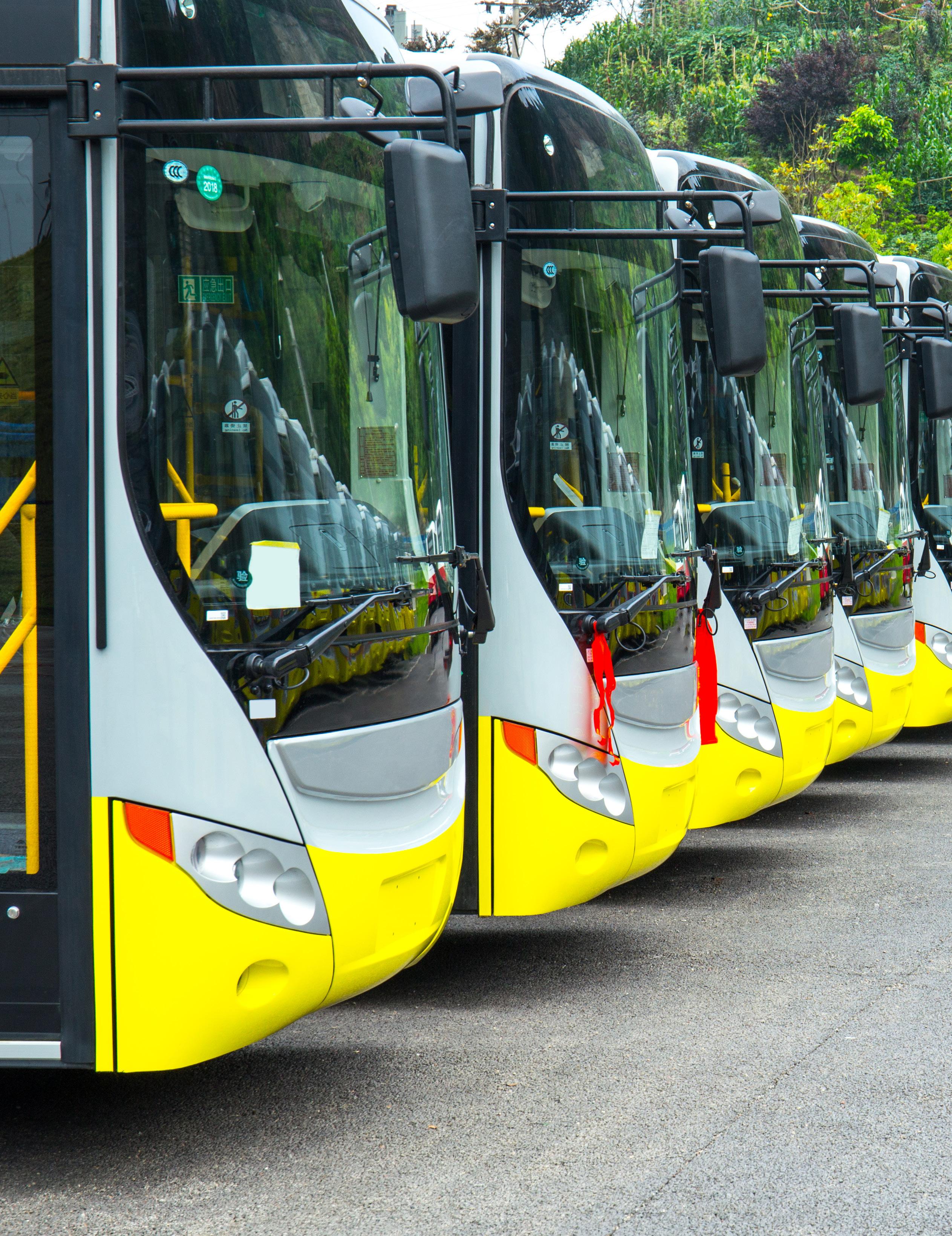
14|The Hummingbird
hybrid, electric motor, compressed natural gas, and liquid petroleum gas, currently attract an excise tax at a flat rate of 20 per cent, compared to as high as 120 per cent on traditional internal combustion engine powered vehicles. In addition, a fuel tax of US $0.20 per litre replaces the annual road taxes previously charged. This provides an advantage to motorists who make the switch to electricpowered vehicles depending on engine size. Barbados is already reaping the benefits of this exercise with a battery electric vehicle penetration of approximately 0.3 per cent, which compares favorably with the penetration in larger markets. Barbados also launched its electric bus project in August 2020, deploying 33 electric buses and installing all the necessary infrastructure such as charging stations.

With respect to the BVI, while no policy on sustainable transport
exists, ECLAC Caribbean supported the government in developing a National Sustainable Development Plan that aligns with the SDGs. The government has also prepared a package of incentives which would feature zero tax on the import of clean energy systems, such as solar and wind power generation equipment and hybrid vehicles. The government of the BVI has also signaled the direction in which it intends to go, with the Go Green Initiative. This is being developed in partnership with local entrepreneurs and businesspersons, to encourage the ownership of electric vehicles. The government has also indicated that it will be implementing a zerotax regime on the importation of hybrid and electric vehicles.
In Jamaica, previous efforts have been made to institutionalize an overarching national policy for the transportation sector. Jamaica’s National Development Plan –Vision 2030 – recognizes that a
well-organized and accessible transportation sector, capable of moving people and goods efficiently, safely, and affordably, is indispensable to economic progress, especially for the most vulnerable and excluded populations. However, the sector has evolved without a comprehensive guiding policy framework. Actions taken in the sector have been initiated by several different government agencies, with the expectation that there will be eventual harmonization under the “whole of government” approach currently being pursued.
The policy brief, in presenting options for sustainable transportation, concluded that the evolution of the land transportation subsector in the case countries should result in cost effective, reliable and flexible land transportation systems which minimize impacts on the natural environment, while at the same time enhancing the social lifestyles of Caribbean peoples.
The Hummingbird |15
SAINT KITTS URGES VISITORS

TO “VENTURE DEEPER”
It starts with the bold green of Mount Liamuiga, the vibrant rainforests and golden beaches. It’s a call for travelers looking for something a little deeper.
Saint Kitts has officially revealed its tourism rebrand, with a new focus, a new identity, and a push for visitors to “Venture Deeper.” It’s Saint Kitts’ first new campaign in five years, as the island looks to “get visible again after the trauma of the last couples of years,” Tourism Authority CEO Tommy Thompson says.
Thompson says of the new brand identity, which takes much of its inspiration from the “natural beauty of Saint Kitts.”
“Right away, you’re blown away by the beauty of the destination,” Thompson says of the re-brand’s kick-off video. “The topography, the mountains, the green of the forests, the beaches, so anywhere you go on the island you’re looking at a mountain or the water or both. We feel that this ad actually draws you in.”
Of course, the island is far more than just its breathing looks, and the new brand will focus on a number of pillars: culinary, heritage, sustainability. “These are going to help Saint Kitts stand out,” he says.
The rebrand comes after Saint Kitts removed all of its travel restrictions for visitors, which has led to a new surge in travel to the island, he said. “Saint Kitts has only been in the tourism business for 20 years or so,” Thompson says.
“That’s a lot less than our other competitors we’re up against. This is a great opportunity for Saint Kitts to punch above its weight and for people to see the unique qualities that we have.”

“It’s part of the island you haven’t seen before,”
16|The Hummingbird
IN TRINIDAD PERUVIAN FOOD FESTIVAL
A Peruvian food festival was recently held in Trinidad at the Hyatt Regency Trinidad hotel. On display were many of the South American country’s culinary gems, but there was a greater plan at play.
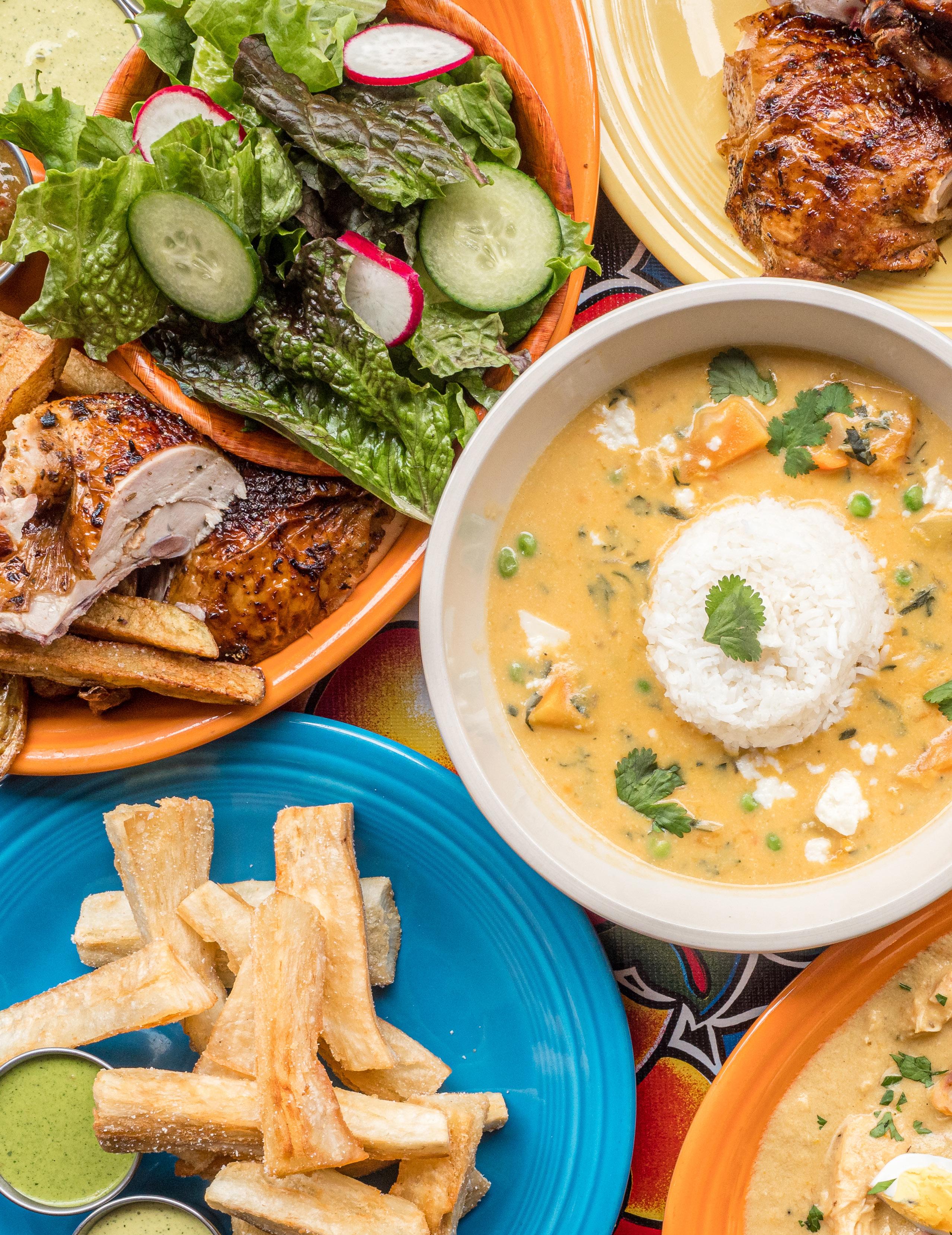
That plan was to aid in regional food security, according to Ambassador David Màlaga. While this is the embassy’s first food festival in TT, he wants to ensure it is not the last. Malaga said, “Peruvian cuisine is more than a response to feed our people. It is a social experience. It is the sum of all of our history, 10,000 years of history, cooking and coming together to enjoy our meals.”
The country has become a “success story” with its agricultural exports
and believes it can help alleviate the growing problem of global food security. The country’s profile on the World Food Programme (WFP) website says, “Over the past decade, hunger and poverty have significantly decreased in Peru, thanks to consistent economic growth, investments in infrastructure, education and health, and an expansion of social programmes.”
It added that food traditions and gastronomy play a crucial role in Peru’s national identity. The country’s major food export is grapes, but it is also growing its exports of paprika, avocado, blueberries and coffee.
Guests at the food festival were treated to some of Peru’s most known dishes, including varieties of its ceviche and its most popular dish, lomo saltado (stir fried beef). Much like Trinidad and Tobago’s, Peruvian cuisine is a multicultural blend.
The embassy brought Peruvian chef Maria Rosa Vasquez Chavez for the festival. Chavez trained at the Peru branch of Le Cordon Bleu and holds a masters in restaurant management and
innovation from the Basque Culinary Center, Basque Country, Spain.
Chavez’s menu showed the blend of the Japanese, Chinese, Spanish, African and indigenous influence in the country’s cuisine. Guests were treated to a drink of Pisco – the Peruvian brandy made from its grape, that is sometimes colourless or yellowish-toamber in colour – before the meals.
The Hummingbird |17
POLICY IMPERATIVES FOR QUALITY
AND RELEVANT STATISTICS IN THE CARIBBEAN
Even though national statistical offices (NSOs) in the Caribbean face constraints to produce and disseminate in a timely fashion official data and statistics, there are opportunities for improving this situation.

Two of the key constraints have been identified by ECLAC as critical statistical capacity and legislative gaps in National Statistical Systems
(NSSs). It’s also possible to maintain high levels of quality with the modification of specific operating procedures. However, such change in the procedure may require policy changes beyond the administrative authority of NSOs.
In a recently published policy brief, titled “Policy imperatives for the timely production and dissemination of quality and relevant statistics in
the Caribbean”, ECLAC Caribbean notes that such changes can often only be implemented through high level political decision-making. These include institutionalizing an NSS, implementing data-sharing agreements across government agencies, and operationalizing a data release calendar for major statistical products.
18|The Hummingbird
In the brief, ECLAC Caribbean advances the following recommendations for the consideration of Caribbean governments:
Undertake a workforce audit of the NSOs and the other producers of official statistics, to acquire up-to-date information on their staffing and know-how needs; Conduct a training needs assessment survey to help identify skills and competencies within the relevant organizations, and help develop training programs to bridge skill gaps;
Create career development and succession plans to encourage skilled staff to remain in the NSOs or in statistical roles in other ministries, departments and agencies of government that produce official statistics. Succession planning is essential to ensure the viability of Caribbean NSS;
Update the Statistics Acts or Ordinances, as relevant, to (a) include the definition of the National Statistical System, (b) include the definition of Official Statistics, (c) provide the NSO right of access to administrative records for statistical purposes and (d) establish the supremacy of the Statistics Acts or Ordinance above other legislation in matters relating to official statistics;
Hold data user/producer consultations and user satisfaction surveys at least once every year to improve the utility of statistical data for users;

Prepare annual reports on the activities and developments in the NSS to promote transparency and accountability;
Promote and encourage the formation within NSOs of research units that evaluates existing methodologies and processes, while also managing the development and introduction of new statistical series and indicators;
Establish strategies for conceptualizing and implementing significant changes to bring NSOs in full compliance with the principles of national statistical capacity.
PHOTO CREDIT:WIKIMEDIA COMMONS
1.
2.
The Hummingbird |19
3. 4. 5. 6. 7. 8.
THE KITCHEN
LOMO SALTADO Peruvian

Prep Time: 30 mins
Cook Time: 40 mins
Servings: 4
What you will need:
• 1 (16 ounce) package frozen French fries
• 2 tablespoons vegetable oil
• 1 pound beef tri tip, sliced 1/8 to 1/4 inch thick
• Salt and pepper to taste
• 1 large onion, sliced into strips
• 3 large tomatoes, peeled, seeded, and sliced into strips
• 1 yellow chili pepper (preferably Peruvian aji amarillo)
• ¼ cup distilled white vinegar
• 1 dash soy sauce to taste
• 2 tablespoons chopped fresh parsley
How to Make it:
Step 1: Preheat the oven to 425 degrees F (220 degrees C).
Step 2: Arrange frozen French fries in a single layer on an ungreased cookie sheet.
Step 3: Bake in the preheated oven until light golden, 22 to 24 minutes.
Step 4: Meanwhile, heat 2 tablespoons oil in a frying pan over medium-high heat. Season sliced beef with salt and pepper. Cook and stir beef in hot oil until just cooked and the juices release. Use a slotted spoon to transfer beef to a plate.
Step 5: Cook and stir onions in beef drippings in the pan until translucent, 3 to 4 minutes. Stir in tomato and aji amarillo; cook until tomato softens. Pour in vinegar and soy sauce.
Step 6: Add French fries and beef to the pan. Cover and cook until beef is cooked through, about 3 minutes.
Step 7: Season with salt and pepper; sprinkle with chopped parsley to serve.
20|The Hummingbird

The Hummingbird |21
CONTACT US
CONTACT US

ECLAC Subregional Headquarters for the Caribbean,
1 Chancery Lane, P.O. Box 1113, Port of Spain, Trinidad and Tobago.
ECLAC Subregional Headquarters for the Caribbean, 1 Chancery Lane, P.O. Box 1113, Port of Spain, Trinidad and Tobago, West Indies.
MEDIA CONTACT
Telephone: 1 868 224 8000
Tel.: 1 868 224 8075
E-mail: registry@eclacpos.org
E-mail: eclac-media-pos@eclac.org
MEDIA CONTACT
Tel.: 1 868 224 8075


E-mail: media-pos@eclac.org
SOCIAL MEDIA
SOCIAL MEDIA




CLICK HERE OR SCAN THE QR CODE TO VISIT OUR WEBSITE...

































